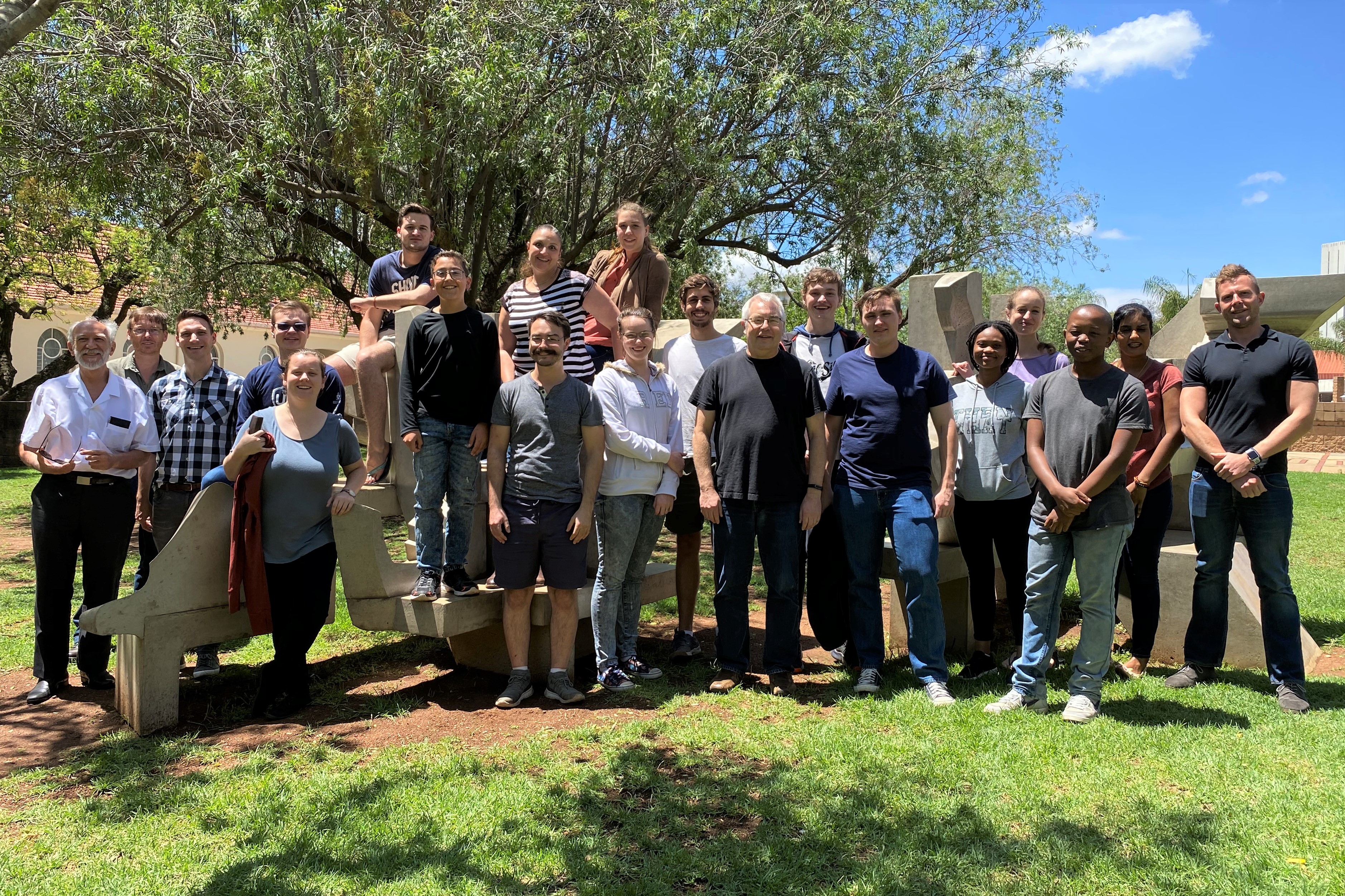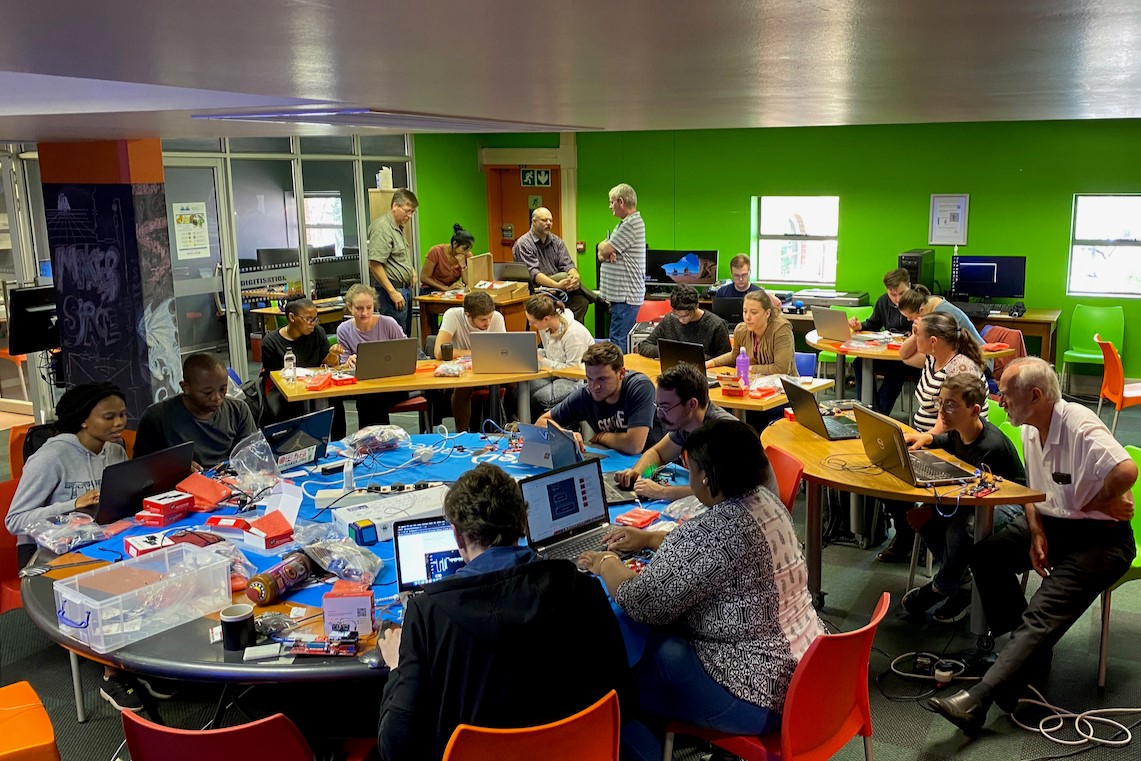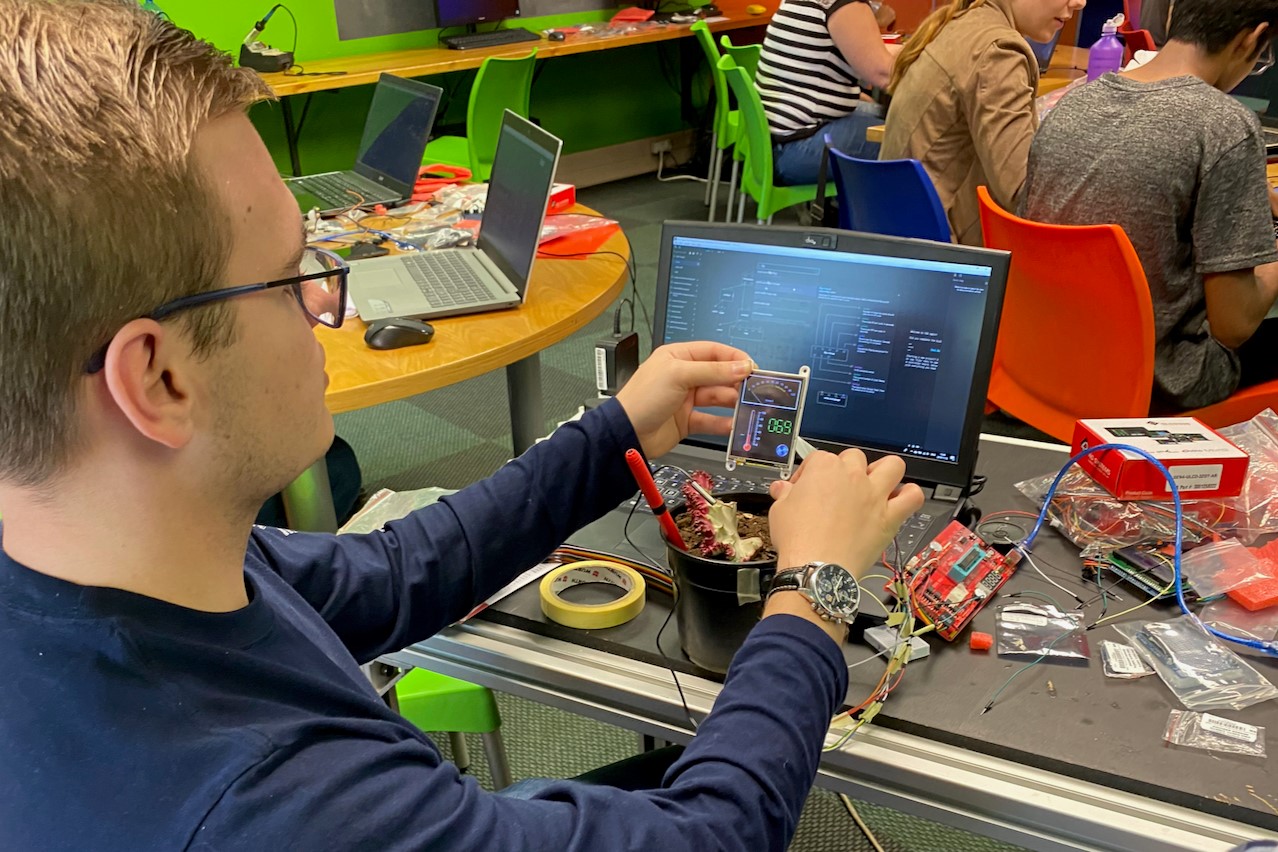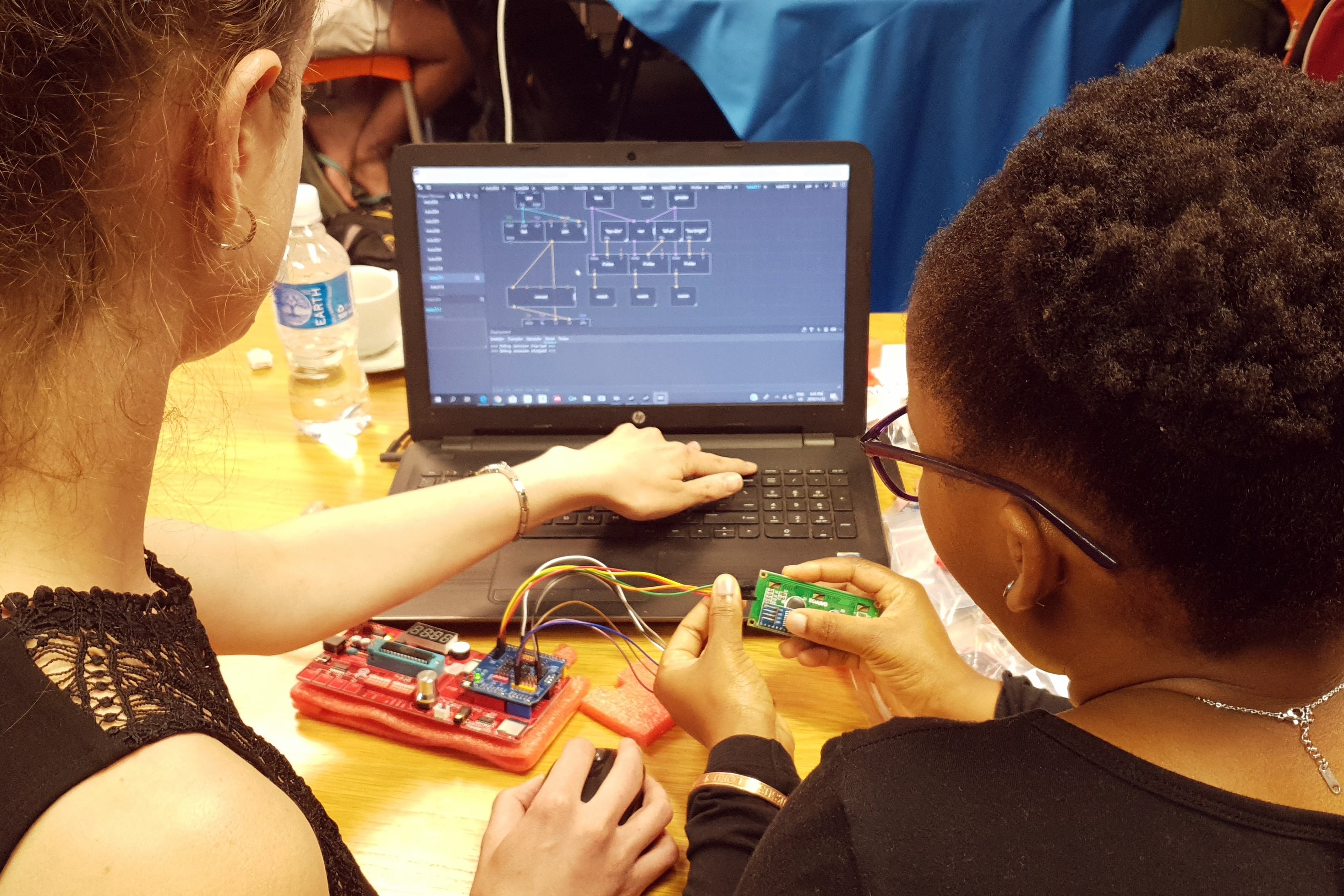FABI students and researchers participate in Biomaker Workshop 2019-11-19
What does the average biologist have to do with programming microprocessors? Everything, as it turns out! This is the vision of an exciting initiative funded by the UK’s Global Challenges Research Fund (GCRF) to build capacity in practical applications of open-source environmental sensors, 3D printing technology, Arduino micro-controllers and graphical programming that enthusiasts can implement in DIY projects without prior experience in how to code.
Prof. Jim Haseloff, a world-leading plant synthetic biologist at the University of Cambridge, developed the so-called Biomaker Challenge with his colleagues in which transdisciplinary teams of students and staff learn to use OpenSmart Arduino Rich Uno R3 kits and low-cost sensors and devices to build DIY bio-instruments, sensors or hardware for various practical applications in the biological and related fields. For a fraction of the cost of commercial equipment, Biomakers have designed field-deployable 3D-printed microscopes, microbial bioreactors, blood oxygenation systems and even yeast-counting imaging systems for home brewing, as documented on the Hackster developer community site.
The GCRF pump-priming funding has allowed Prof. Haseloff’s Biomaker activities to extend to African countries including Ghana, Egypt and Ethiopia at strategic institutions aside from the University of Pretoria. They disseminate Biomaker training and starter kits including a suite of Shenzhen-manufactured environmental sensors and low-cost devices, accompanied by useful online tutorials on how to programme DIY prototypes using simplified XOD graphical programming. Co-ordinated by Dr Steven Hussey, a Senior Lecturer affiliated with FABI, Prof. Haseloff presented a two-day workshop from 12-13 November 2019 hosted by the UP Makerspace. Over 20 undergraduate and postgraduate students and UP researchers from diverse departments across the university - a quarter of them associated with FABI - rapidly mastered basic Arduino circuitry and simple-to-use 4D programmable touchscreens to create simple device prototypes. Among those designed within a few hours of learning was a device that monitored soil moisture levels, ambient temperature and even seismic disturbances, sounding an alarm when parameters deviated from a threshold value.
Photo caption: November Biomaker workshop participants. Those from FABI include Dr Nicky Creux, Dr Steven Hussey, Ms Jane Ramaswe, Mr Ricu Claassens, Mr Hannes Strydom and Ms Thuso Moshabesha.





